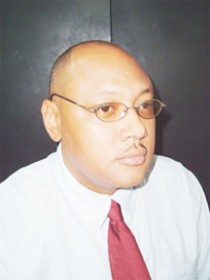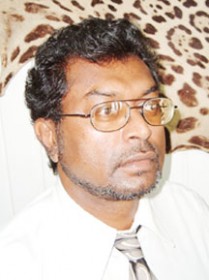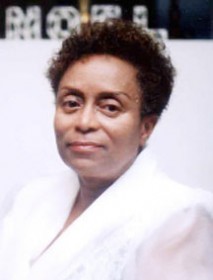-Trotman could step aside
The Alliance For Change (AFC) will be hosting a meeting of its National Executive on Saturday to settle the issues related to the rotation of its leadership, which could see party leader Raphael Trotman step aside.

Stabroek News was told that the issue is a source of strong disagreement among several members of the executive. Further, a settlement of the issue could result in Trotman stepping down in order to allow Chairman Khemraj Ramjattan to assume the leadership of the party and endorsing him as the presidential candidate at the next Delegates’ Conference, in the run up to the next general elections. Sources said some members support Trotman continuing in the position, while others insist that the “rotation principle” be adhered to. The meeting will see participation from both local and overseas chapters of the party.
Last July, Trotman was returned unopposed as party leader at the AFC’s Second Delegates’ Convention. Ramjattan was also returned as party Chairman, while Sheila Holder was returned as vice-chairperson.

The party’s constitution says that the various senior positions of the AFC, including those in the national executive, regions and groups “ought to be rotated as far as possible.” This provision is in place in order to ensure that “no member is allowed to serve more than two consecutive terms in the same office, so as to ensure broader activism in leadership positions by the membership.” At this point, the party’s principals, Trotman, Ramjattan and Holder have each served two successive terms in their respective posts.
The three principals had reportedly agreed on the rotation principle as a gesture to affirm solidarity and signal a break from race-based politics they said were perpetuated by the PPP/C and PNCR.
In the run up to the 2006 general elections, the party had drafted an operational methodology for its activists. In it, it said the AFC “is peculiar” in that the leadership of the party is rotated between two of the principals at mid-point of each term. “We believe that it is in the best interest of the country and of the movement that the three principals share the leadership functions,” it said.

“This will ensure shared vision and continuity with respect to the movement’s policies and activities and a comfort zone for those of the electorate concerned about ethnic unity.”




